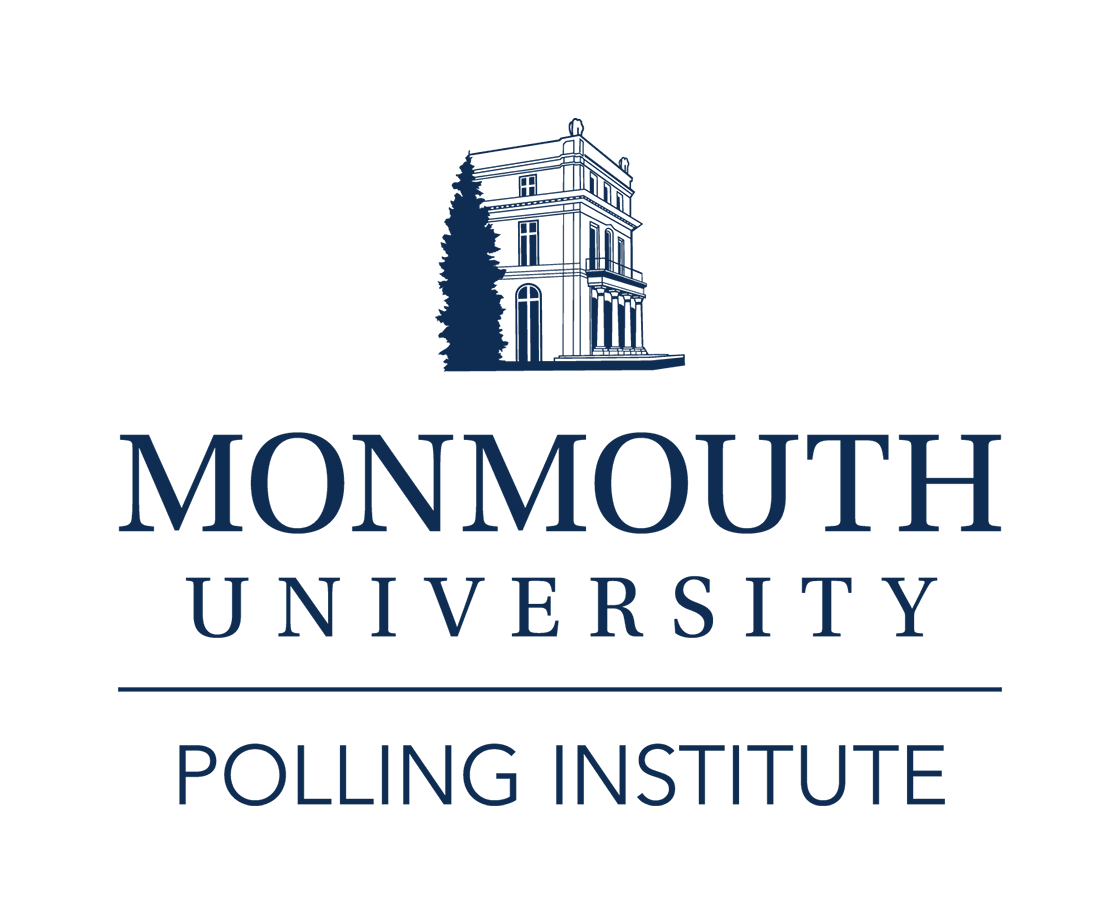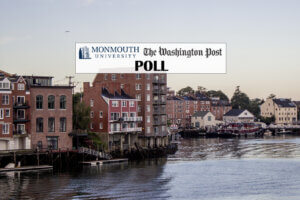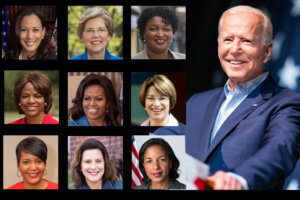West Long Branch, NJ – Hillary Clinton has taken a slim 3 point lead over Bernie Sanders in New Hampshire, according to the latest Monmouth University Poll of Granite State voters likely to participate in February’s Democratic primary. Sanders retains his sizable advantage among registered independents and new voters, men, and younger voters. However, Clinton has made significant gains in the past two months with registered Democrats, women, and older voters.
Currently, Clinton holds a 48% to 45% lead over Bernie Sanders in the 2016 cycle’s first primary. This reverses the lead Sanders held in Monmouth’s September poll. He led Clinton by 43% to 36% when Joe Biden, Lincoln Chafee, and Jim Webb were included in the poll, and by an even larger 49% to 41% margin when the supporters of those three candidates were reallocated to their second choices. Support for Martin O’Malley (3%) in the current poll is basically unchanged from two months ago.
Sanders retains the same advantage he held two months ago among certain voting blocs. He leads Clinton among men by 54% – 37% similar to his edge in September (51% – 40%); among voters under age 50 by 54% – 36%, also similar to two months ago (51% – 40%); and among registered independents and new voters who are likely to vote for the first time in February by 59% – 35%, again similar to September (53% – 34%).
Clinton, on the other hand, has reversed deficits she held among women – now leading Sanders 56% – 37% compared to trailing 42% – 47% in September – and among voters age 50 and older – now leading 56% – 38% compared to trailing 42% – 47% two months ago. Clinton has also taken a sizable 57% – 35% lead among registered Democrats, a group that will make up the bulk of February’s primary electorate. She and Sanders were tied 46% – 46% among this group in September.
“The Clinton team has recently taken to charging Sanders with sexism over some of his remarks. This may be one reason why she has been able to win back women voters in her base,” said Patrick Murray, director of the independent Monmouth University Polling Institute in West Long Branch, NJ.
Currently, just over one-third (35%) of likely primary voters say they are completely decided on who they will support, 38% say they have a strong preference but are willing to consider other candidates, 14% have only a slight preference, and 13% say they are really undecided. There are few significant differences in these findings based on which candidate these voters support, but Clinton’s supporters are slightly more likely than Sanders’s voters to be upset if their candidate did not become the party’s standard bearer in 2016.
About 4-in-10 voters say they would be very (19%) or somewhat (23%) unhappy if their chosen candidate did not win the Democratic nomination. Half (50%) say they would be okay with a different outcome. These results are unchanged from September. Just under half (47%) of Clinton voters say they would be unhappy if she did not win, which is slightly higher than two months ago (40%). Just over a third (38%) of Sanders voters would be unhappy if their guy did not win, but this is down from 48% who felt that way in September.
“Past results show that registered Democrats are likely to make up a majority of the primary electorate. Sanders either has to convince more of these voters to support him or he has to turn out an unprecedented number of independents and brand new voters,” said Murray. [Note: New Hampshire allows same-day registration.]
Looking at the candidates’ fundamental strengths, likely primary voters continue to have overwhelmingly positive views of both Clinton (79% favorable – 15% unfavorable) and Sanders (86% favorable – 8% unfavorable). O’Malley holds a 32% favorable and 17% unfavorable rating. All of these results are very similar to the September poll findings, except for a slight improvement in voter familiarity with O’Malley. The percent of Democratic voters who have no opinion of the former Maryland governor went down from 64% in September to 51% in the current poll.
Lessig, the Harvard law professor who ended his run yesterday after being excluded from the Democratic debates, departed the race with only 1-in-4 New Hampshire voters having an impression of him (11% favorable and 15% unfavorable). When asked whether he should be on the stage for the next face-off, most (53%) likely New Hampshire primary voters don’t have an opinion either way. Among the rest, 35% say he should be included and just 13% say he should not. The question is now moot.
The Monmouth University Poll also found that 58% of likely Democratic primary voters are aware of the federal budget plan that was passed by Congress last week. Among this group, 56% approve of the deal and just 19% disapprove. Clinton voters (72%) are more likely than Sanders voters (42%) to approve of this deal, even though the Vermont senator voted for its passage.
A plurality (42%) feel that Congressional Democrats agreed to the right amount of compromise to reach this deal, while 26% say the Democrats compromised too much and 14% say Democrats did not compromise enough – a mixed result which indicates that Democratic voters are not overly upset with their own party’s role in the budget negotiations. At the same time, a majority (57%) of these voters feel the Republican Party did not compromise enough, 25% say the GOP compromised the right amount, and 6% say they compromised too much.
These findings contrast with the opinions of voters who are likely to participate in New Hampshire’s Republican presidential primary. In poll results released yesterday, just 29% of GOP primary voters approve of the budget deal. Over 6-in-10 (62%) feel that the Democrats in Congress did not compromise enough, which is similar to the number of Democratic primary voters who say the same about Congressional Republicans. However, a majority (53%) of likely GOP primary voters feel their own party compromised too much – which is double the number of Democratic primary voters who feel the same about their party’s role in the budget negotiations.
The Monmouth University Poll was conducted by telephone from October 29 to November 1, 2015 with 403 New Hampshire voters likely to vote in the Democratic presidential primary. This sample has a margin of error of ± 4.9 percent. The poll was conducted by the Monmouth University Polling Institute in West Long Branch, NJ.
DATA TABLES
The questions referred to in this release are as follows:
(* Some columns may not add to 100% due to rounding.)
1. Who would you support if the presidential primary was being held today and the candidates for the Democratic nomination were – [NAMES WERE ROTATED]?
| Nov. 2015 | Sept. 2015* | Sept. 2015 | |
| Hillary Clinton | 48% | 41% | 36% |
| Bernie Sanders | 45% | 49% | 43% |
| Martin O’Malley | 3% | 3% | 2% |
| Larry Lessig | 1% | 1% | 1% |
| (VOL) Other | 0% | 2% | 1% |
| Joe Biden | n/a | n/a | 13% |
| Lincoln Chafee | n/a | n/a | 1% |
| Jim Webb | n/a | n/a | 1% |
| (VOL) Undecided | 3% | 5% | 3% |
| (n) | (403) | (400) | (400) |
*Biden, Chafee, Webb voters reassigned to their second choice.
2. Which of the following best describes where your decision stands at this moment: I am completely decided on which candidate I will support, I have a strong preference right now but I am willing to consider other candidates, I have a slight preference among a group of candidates I like, or I am really undecided among a number of candidates?
| Nov. 2015 | Clinton voters | Sanders voters | |
| Completely decided | 35% | 39% | 34% |
| Strong preference | 38% | 37% | 43% |
| Slight preference | 14% | 12% | 15% |
| Undecided | 13% | 11% | 7% |
[QUESTION 3 WAS ASKED OF THOSE WITH A CHOICE; n=389, moe = +/-5.0%.]
3. How would you feel if someone other than [VOTE CHOICE] won the Democratic nomination – would you be very unhappy, a little unhappy, or would you be okay with it?
| Nov. 2015 | Clinton voters | Sanders voters | Sept. 2015 | |
| Very unhappy | 19% | 23% | 15% | 19% |
| Little unhappy | 23% | 24% | 23% | 23% |
| Okay with it | 50% | 46% | 54% | 50% |
| (VOL) Depends | 6% | 5% | 7% | 7% |
| (VOL) Don’t know | 2% | 2% | 1% | 1% |
4. I’m going to read you a few names of people who are running for president in 2016. Please tell me if your general impression of each is favorable or unfavorable, or if you don’t really have an opinion. [NAMES WERE ROTATED]
| Favorable | Unfavorable | No opinion | |
| Former Secretary of State Hillary Clinton |
79% | 15% |
6% |
| –September 2015 |
77 | 17 | 7 |
|
Law professor Larry Lessig |
11% | 15% |
73% |
| –September 2015 |
12 | 12 |
76 |
| Former Maryland Governor Martin O’Malley |
32% | 17% |
51% |
| –September 2015 |
23 | 13 |
64 |
| Vermont Senator Bernie Sanders |
86% | 8% |
6% |
| –September 2015 |
83 | 7 |
10 |
5. Should Larry Lessig be included or not included in the next Democratic debate, or don’t you have an opinion on this either way?
| Nov. 2015 | |
| Be included | 35% |
| Not included | 13% |
| No opinion | 53% |
6. Have you read or heard anything about the federal budget plan that was just passed by Congress, or not?
| Nov. 2015 | |
| Yes, have heard | 58% |
| No, have not heard | 42% |
[THE FOLLOWING QUESTIONS WERE ASKED OF THOSE WHO HAVE HEARD ABOUT THE FEDERAL BUDGET PLAN; n=249, moe = +/-6.2%.]
7. Do you approve or disapprove of this plan?
| Nov. 2015 | |
| Approve | 56% |
| Disapprove | 19% |
| (VOL) Don’t know | 25% |
[QUESTIONS 8 & 9 WERE ROTATED]
8. Do you think the Republicans in Congress compromised too much, not enough, or the right amount in reaching this budget deal?
| Nov. 2015 | |
| Too much | 6% |
| Not enough | 57% |
| Right amount | 25% |
| (VOL) Don’t know | 12% |
9. Do you think the Democrats in Congress compromised too much, not enough, or the right amount in reaching this budget deal?
| Nov. 2015 | |
| Too much | 26% |
| Not enough | 14% |
| Right amount | 42% |
| (VOL) Don’t know | 18% |
The Monmouth University Poll was sponsored and conducted by the Monmouth University Polling Institute from October 29 to November 1, 2015 with a statewide random sample of 403 New Hampshire voters drawn from a list of registered Democrats and independent voters who participated in a primary election in the past two election cycles or voted in both the 2012 and 2014 general elections, and indicate they will vote in the Democratic presidential primary in February 2016. This was supplemented by a sample of non-voters who say they are likely to register and vote in the Democratic primary. This includes 282 contacted by a live interviewer on a landline telephone and 121 contacted by a live interviewer on a cell phone, in English. Monmouth is responsible for all aspects of the survey design, data weighting and analysis. Final sample is weighted for age and gender based on state registration list information on the pool of voters who participate in primary elections. Data collection support provided by Braun Research (field) and Aristotle (voter list and non-voter sample). For results based on the total sample, one can say with 95% confidence that the error attributable to sampling has a maximum margin of plus or minus 4.9 percentage points (unadjusted for sample design). Sampling error can be larger for sub-groups (see table below). In addition to sampling error, one should bear in mind that question wording and practical difficulties in conducting surveys can introduce error or bias into the findings of opinion polls.
|
POLL DEMOGRAPHICS (weighted) | ||
| 59% Reg Dem | 43% Male | 13% 18-34 |
| 29% Reg Ind | 57% Female | 29% 35-49 |
| 11% New voter | 36% 50-64 | |
| 22% 65+ | ||
Click on pdf file link below for full methodology and results by key demographic groups.




